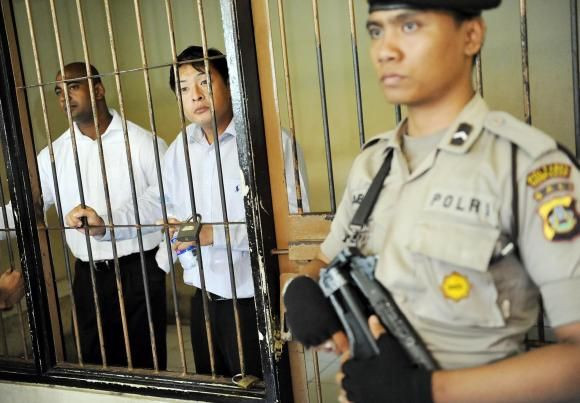Australia Ratchets Up Pressure On Indonesia Over Executions

(Reuters) - Indonesia owes it to Australia not to execute two Australian drug offenders on death row, Prime Minister Tony Abbott said on Wednesday, ratcheting up a diplomatic war of words that is threatening to sour relations between the neighbors.
Australia has been pursuing an eleventh-hour campaign to save the lives of Myuran Sukumaran, 33, and Andrew Chan, 31, two members of the so-called Bali Nine, convicted in 2005 as the ringleaders of a plot to smuggle heroin out of Indonesia.
Indonesia has harsh penalties for drug trafficking and resumed executions in 2013 after a five-year gap.
Abbott urged Indonesia to remember the devastating 2004 Indian Ocean tsunami, saying Australia would feel "grievously let down" if the executions proceeded despite the roughly A$1 billion in assistance it rendered Indonesia during that tragedy.
"I would say to the Indonesian people and the Indonesian Government: We in Australia are always there to help you, and we hope that you might reciprocate," he told reporters.
"I don't want to prejudice the best possible relations with a very important friend and neighbor. But I've got to say that we can't just ignore this kind of thing."
Indonesia on Tuesday postponed the transfer of five convicts, including the two Australians, to another prison for execution, prompted by what authorities said were medical concerns and families' requests for more time with the prisoners.
Abbott and United Nations Secretary-General Ban Ki-moon have appealed to Indonesia not to execute the prisoners for drug crimes, also among them citizens of Brazil, France, Ghana, Indonesia, Nigeria and the Philippines.
Indonesian President Joko Widodo, however, has defended its right to use capital punishment against drug convicts and has denied requests for clemency.
The case has enormous resonance as a domestic political issue in Australia, and Abbott ratcheted up the rhetoric at the weekend amid a growing campaign to boycott travel to Bali, a destination favored by Australian tourists.
Australia and Indonesia have a long history of diplomatic tension, which has periodically complicated cooperation on regional issues, including people smuggling and intelligence.
Indonesia recalled its envoy and froze military and intelligence cooperation in 2013 after reports that Canberra had spied on top Indonesian officials, including former President Susilo Bambang Yudhoyono's wife.
Full diplomatic cooperation was restored last May, but Foreign Minister Julie Bishop last month refused to rule out withdrawing Australia's ambassador from Jakarta if the executions went ahead.
© Copyright IBTimes 2025. All rights reserved.





















